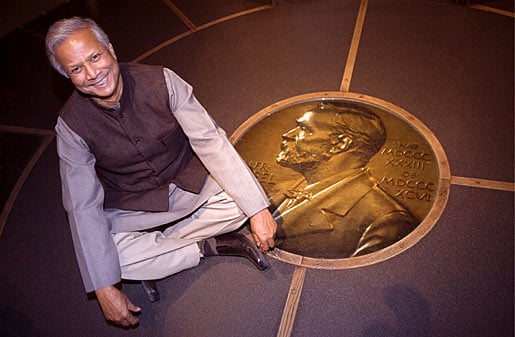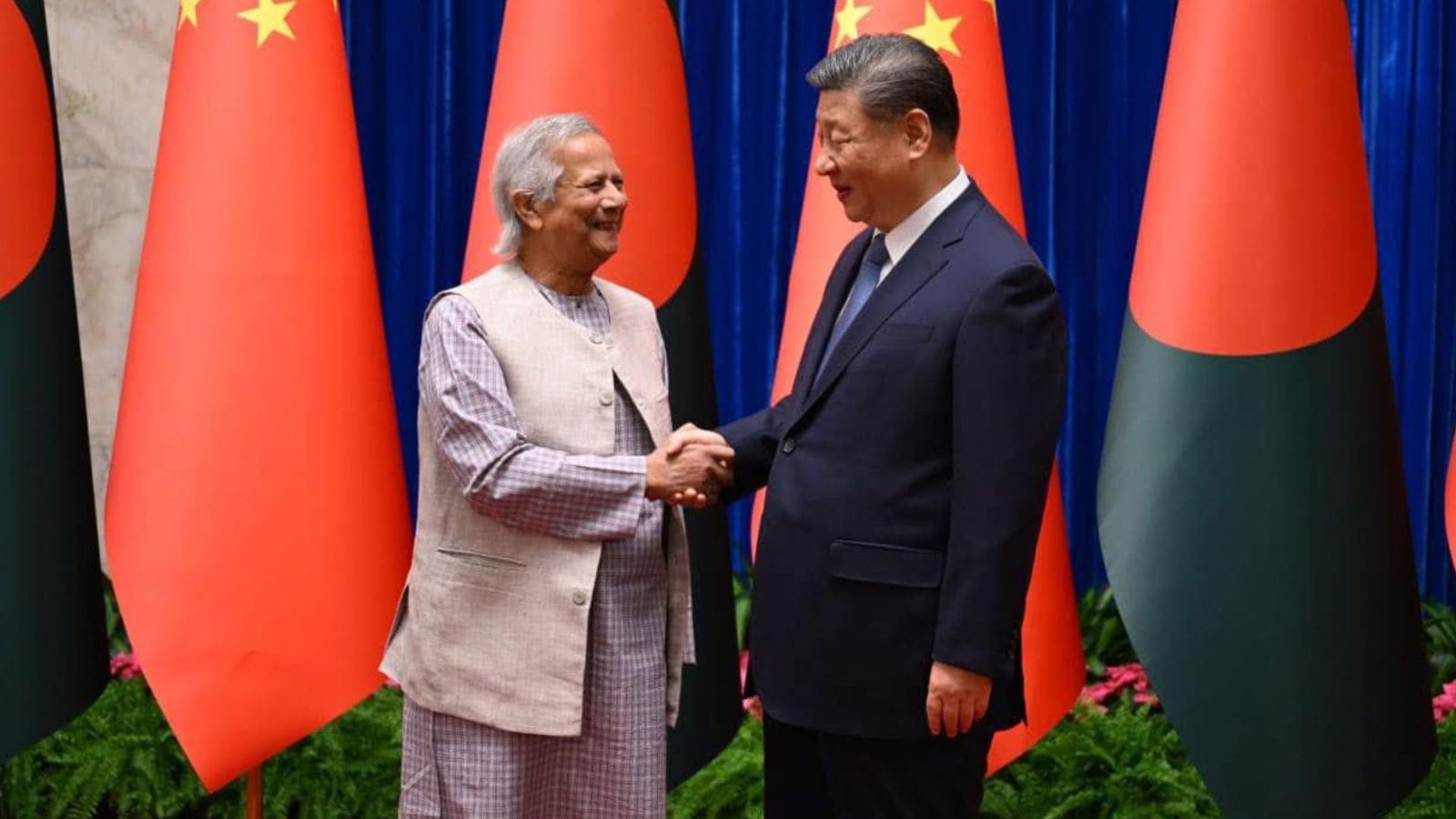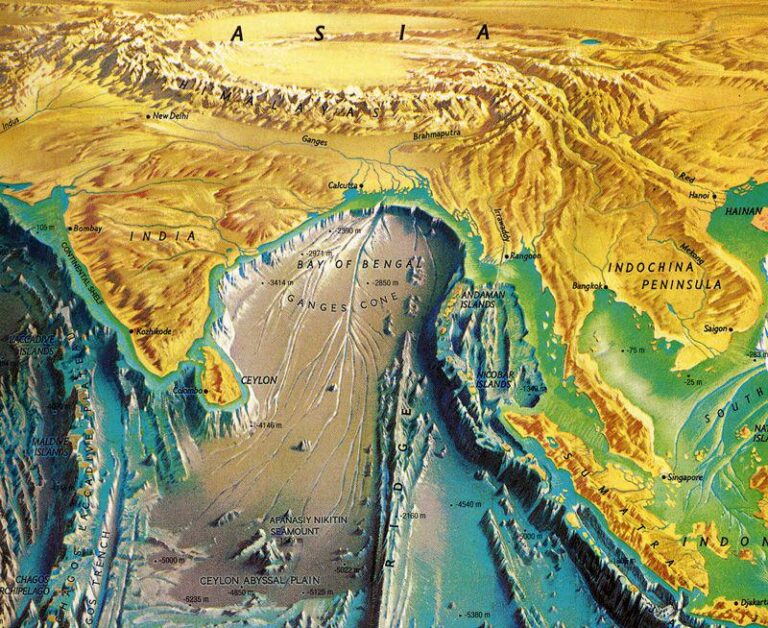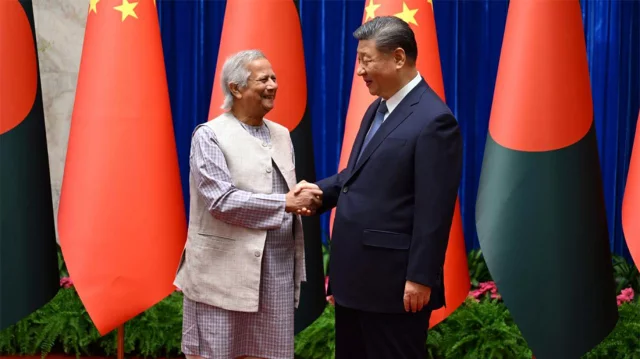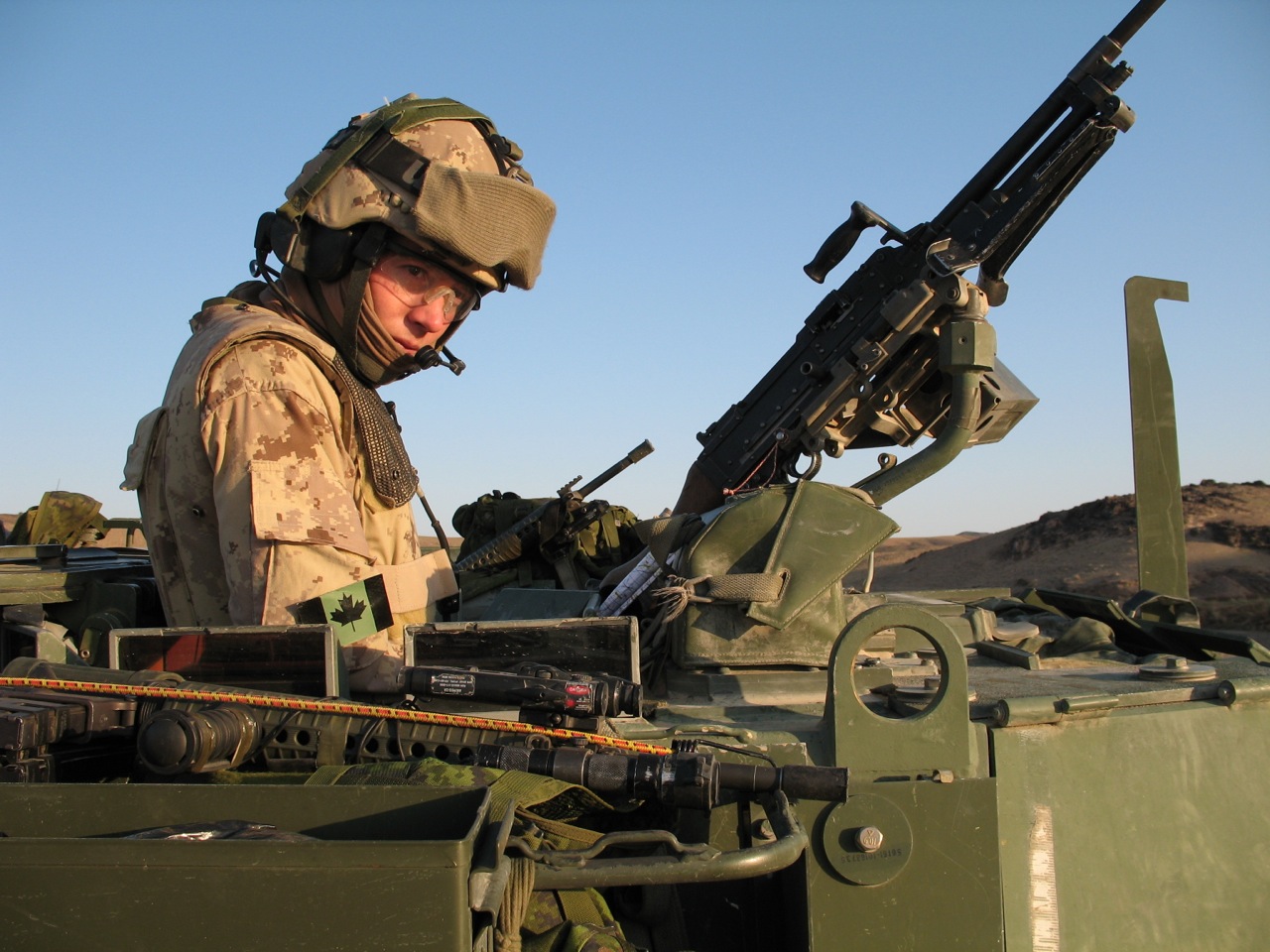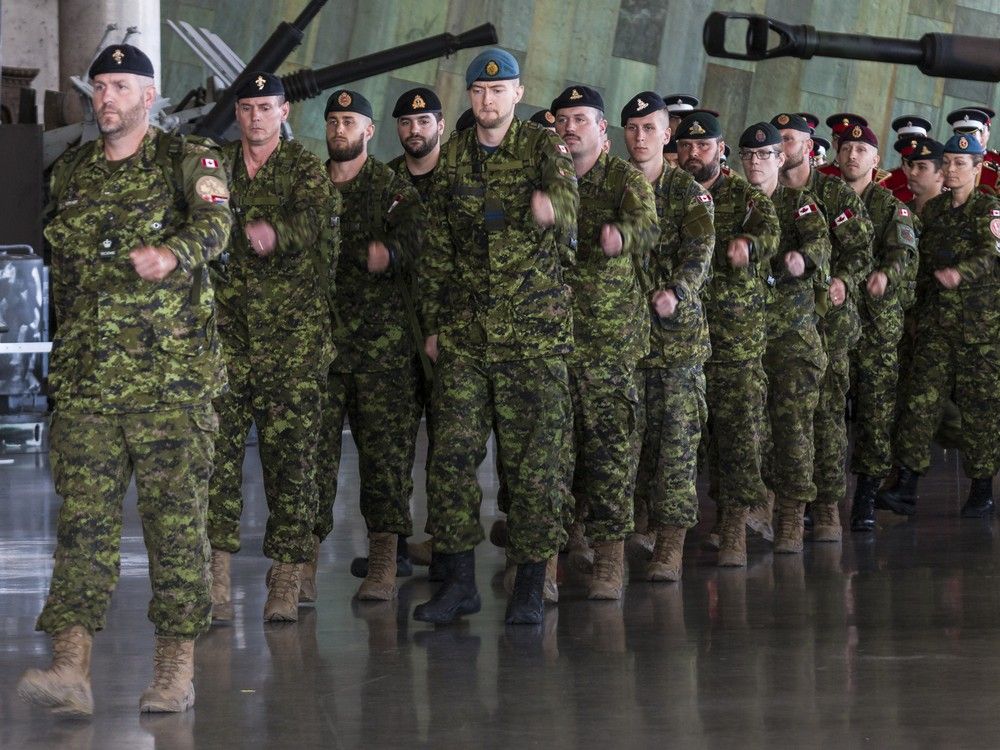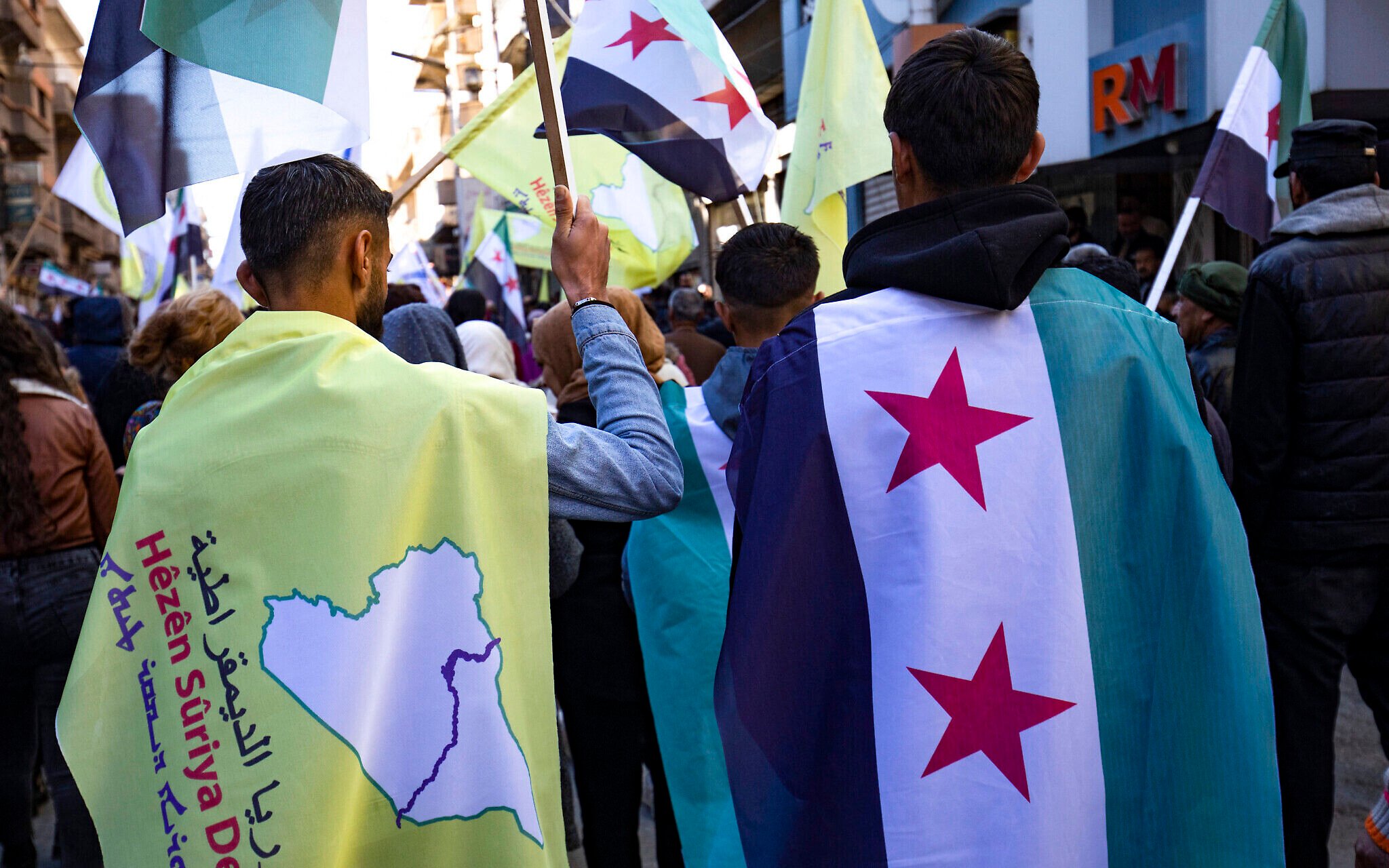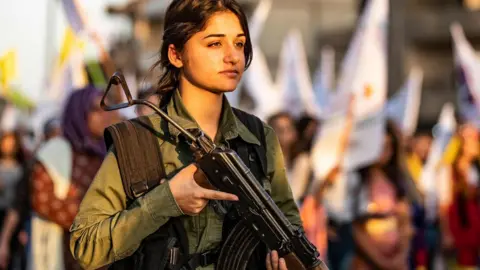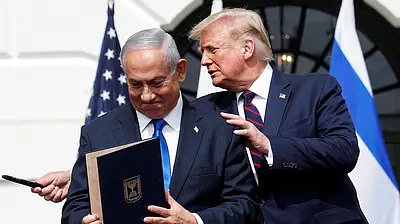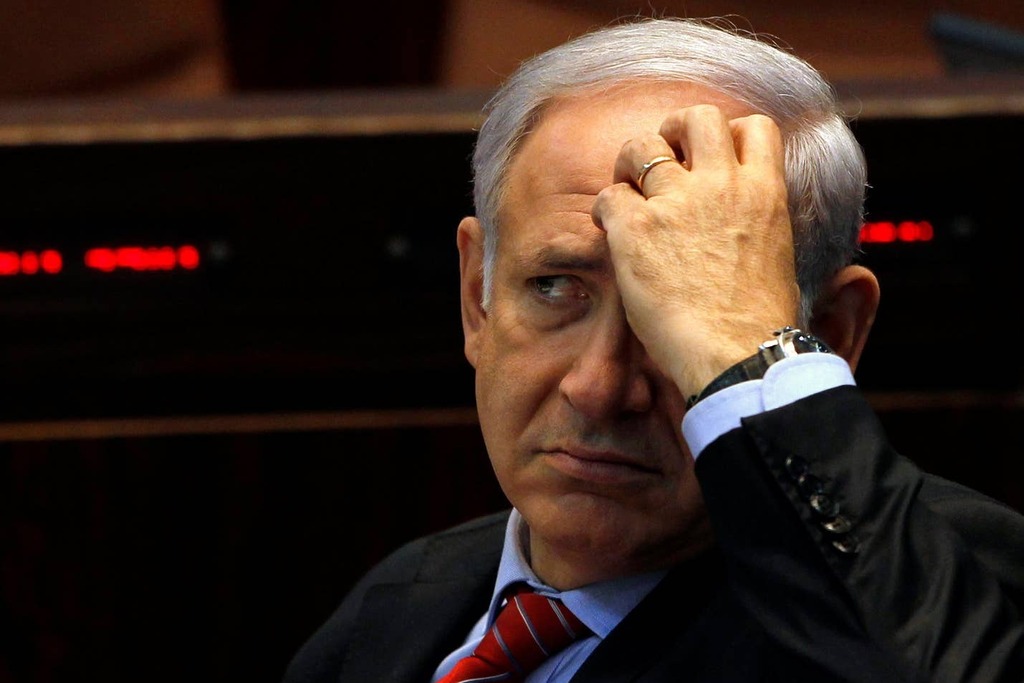Ukraine seemed to be running out of diplomatic cards to play – with Donald Trump’s support on the global stage steadily declining and Russia ramping up its offensive, bolstered quietly by Beijing’s nod-and-wink diplomacy, and just then, Kyiv made its move.
After China flatly denied that any of its citizens were fighting alongside Russian forces in the ongoing war, Ukraine decided to up the ante. In a rare and controversial move, the Ukrainian military, with President Volodymyr Zelensky’s nod, paraded two Chinese nationals captured as prisoners of war before a sea of reporters and camera crews.
It was a direct and deliberate breach of international humanitarian law, which strictly prohibits exposing POWs to public curiosity or media attention. But Kyiv clearly felt the risk was worth the message – Beijing was lying, and Ukraine had the proof.
Just last week, Zelensky publicly claimed that at least 155 Chinese nationals were actively fighting on Ukrainian soil, trained and deployed by Russia. He accused Moscow of dragging China into the conflict and slammed Beijing for staying conveniently silent. Two of those fighters, he said, had been captured in Donetsk. China, of course, rubbished the claims as fiction.
But the visual counterpunch from Ukraine was hard to ignore.
Flanked by Ukrainian security forces, the two POWs, dressed in combat fatigues and speaking Mandarin, were seated before journalists, with a translator by their side. Their stories clearly painted a picture of desperation and deception.
One of the captured men recounted how he lost his job during the COVID-19 pandemic and was lured by the promise of 250,000 rubles a month (roughly $3,000) or more than double what he could earn back home. With a background in medical rehabilitation, he claimed he offered to assist Russia’s military in that capacity. But once in Moscow, the script flipped, he was forced into combat training with no clear understanding of what he’d signed up for.
Documents were all in Russian. Neither of the two said they spoke the language. Communication was reduced to gestures and guesswork. One of them said he often relied on hand signals to follow orders.
A separate military contract, allegedly signed by another Chinese volunteer and shown by Ukrainian intelligence, revealed the fine print: a one-year commitment to full combat duties, support during martial law, and participation in military activities, including those beyond Russian borders.
Once deployed to the battlefield, confusion reigned.
Recounting his final moments in the field, one of the Chinese fighters described the chaos that led to their capture in Donetsk.
“When we reached a forest, my captain just kept saying ‘Da, da, da’—yes, yes, yes in Russian—telling me to attack,” he said. “But I didn’t even know where the target was. We passed many Russian positions. I thought we were heading to our own bunker. I thought he was joking. So I hid. Then another Russian unit captain threw a grenade, and suddenly drones were everywhere.”
They surrendered shortly after. They had been on the battlefield for just three days.
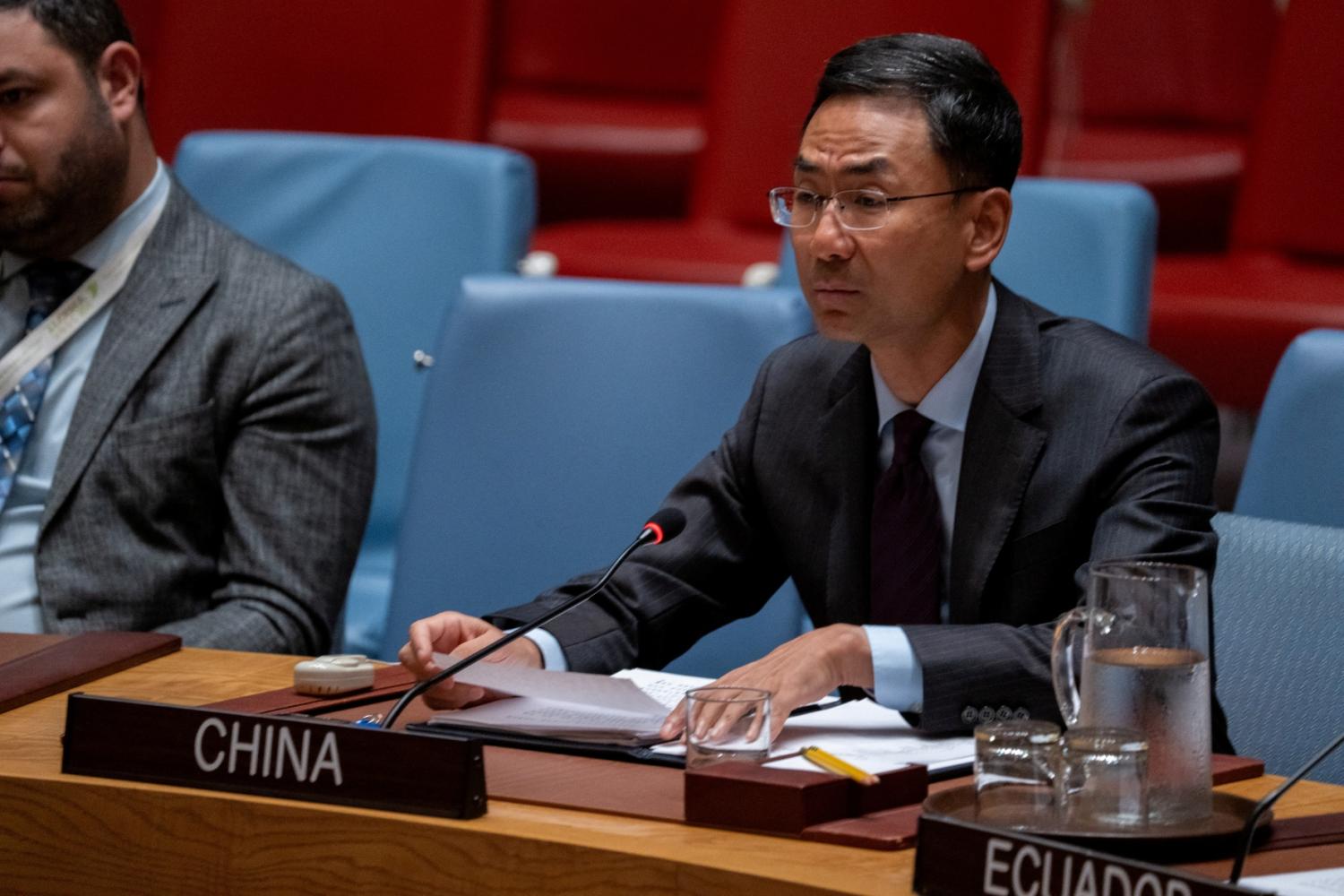
China Faces The Sting
In response to Ukraine’s revelation of captured Chinese nationals fighting for Russia, China’s foreign ministry tried to save face with a quick rebuttal. “We would like to reiterate that China is not the initiator of the Ukrainian crisis, nor is China a participating party,” the statement read. “We urge the relevant parties to correctly and soberly understand China’s role and to refrain from releasing irresponsible remarks.”
But while Beijing deflects and distances itself from the war, Kyiv is taking the gloves off. While China continues to claim neutrality, its actions tell a different story. From the outset of the war, Beijing has provided Moscow with a steady stream of economic and diplomatic support. Now, with Chinese nationals confirmed to be on the frontlines, Kyiv is focused on how China is involved beyond the rhetoric and whether Beijing’s government might be complicit.
When asked whether this involvement could be part of China’s official policy, Zelensky was candid. “I don’t have an answer yet. The Security Service of Ukraine will investigate,” he said. However, he added, “We do believe Beijing is aware of what’s happening.”
The Role of Foreign Fighters in the War
Foreign fighters have become a significant part of this conflict, with volunteers from all corners of the world joining both sides. In 2024, a list reviewed revealed six Sri Lankans, seven Nepalese, and individuals from Somalia, Egypt, and Syria, among others, held by Ukraine as prisoners of war.
Even North Korea has sent an estimated 14,000 troops to aid Russia’s cause, with Kyiv capturing two North Korean soldiers in January alone.
Ukraine’s Defense Intelligence sources explain Russia’s reliance on these foreign recruits. “Russia is now stuck in a war of attrition,” said an intelligence source. “It can’t sustain the front lines with its own forces alone and has no choice but to recruit from everywhere.”
The Chinese prisoners were adamant, however, that their decision was personal. They claimed that slick recruitment videos on TikTok- circulating in China for over a year – were their main motivator. One of these videos shows Russian soldiers training in combat gear, alongside messages in both Russian and Chinese, detailing the financial incentives of joining Russia’s army.
The video, originally aimed at a domestic Russian audience, included Chinese subtitles, which seemed to appeal directly to young Chinese men. The footage, showing soldiers in action, emphasizing “manliness” and financial rewards, resonated in a country where military service is venerated but direct combat experience is often elusive.
Whether these videos were sanctioned by the Russian government or created by social media users remains unclear, but the allure of combat experience in exchange for money is undeniable, especially when advertised on platforms like TikTok, which is wildly popular among Chinese youth.

Why the Timing of Kyiv’s Move Matters
Kyiv has shown POWs to the press before – soldiers from Nepal, fighters from Africa – but its decision to spotlight captured Chinese nationals is a dramatic deviation from the norm. This wasn’t a random move. The timing is strategic, and the audience far beyond just the Ukrainian public.
At the heart of this move is Ukraine’s battle for relevance in Washington, particularly with President Donald Trump back in the Oval Office. His administration has so far struggled to rein in Moscow, with ceasefire talks hitting a dead end. And while Ukraine bleeds on the frontlines, Washington’s eyes seem fixated elsewhere, on China.
From Zelensky’s perspective, nothing is more potent than illustrating the possibility that China’s support for Russia may go beyond yuan and lip service. The optics of Chinese soldiers fighting alongside Russian troops is a message tailor-made for Trump’s administration, which has been slapping Beijing with escalating tariffs and treating it as America’s top global rival.
According to Anders Puck Nielsen of the Royal Danish Defence College, Kyiv is increasingly uneasy about the European Union’s warming overtures to China – as both global powers seek to find common ground amid a worsening trade climate fueled by U.S. tariffs.
“Suddenly it seems there might be potential for the Europeans and the Chinese to find common ground on other questions as well,” Nielsen said. Ukraine’s move, he added, is “clearly political,” aimed at ensuring China’s entanglement with Russia doesn’t get swept under Europe’s diplomatic carpet.
Beijing, predictably, was not amused. “We urge the relevant parties concerned to correctly and soberly understand the role of China and to not release irresponsible remarks,” snapped Chinese foreign ministry spokesman Lin Jian – delivering a warning that didn’t name Kyiv, but left little ambiguity.
Russia’s Military Call-Up Raises Alarm Bells
Meanwhile, Moscow is quietly prepping for a long, grinding war, and it’s starting by replenishing its troops.
On April 1, Russia launched its largest conscription drive since 2011, aiming to draft 160,000 men between the ages of 18 and 30. The campaign is part of President Putin’s broader military expansion plan, targeting a 2.5 million-strong armed force.
The reaction was a wave of panic among Russian youth.
With more than 100,000 Russian soldiers already killed since 2022, according to an open-source tally by BBC and Mediazona, and the prospect of being sent to the front lines has terrified thousands of draft-eligible men. The widening age bracket hasn’t helped either: once capped at 27, the upper age limit for conscription now reaches 30.
And unlike the early months of the war, there are fewer cracks to slip through. Legal loopholes and exemptions still exist (on health grounds, through court appeals, by pursuing higher education, citing family responsibilities, or even applying for alternative civil service) but they are increasingly difficult to leverage. Those in certain sectors, such as the military-industrial complex, or high-ranking politicians, are usually spared. For everyone else it is fair game.
The tightening net has driven many to desperate measures – from feigning illness to leaving the country altogether.
For now, the Kremlin maintains that this is just a regular draft. But as the war drags on and losses mount, it’s clear this is a last-ditch attempt to keep the machine running.
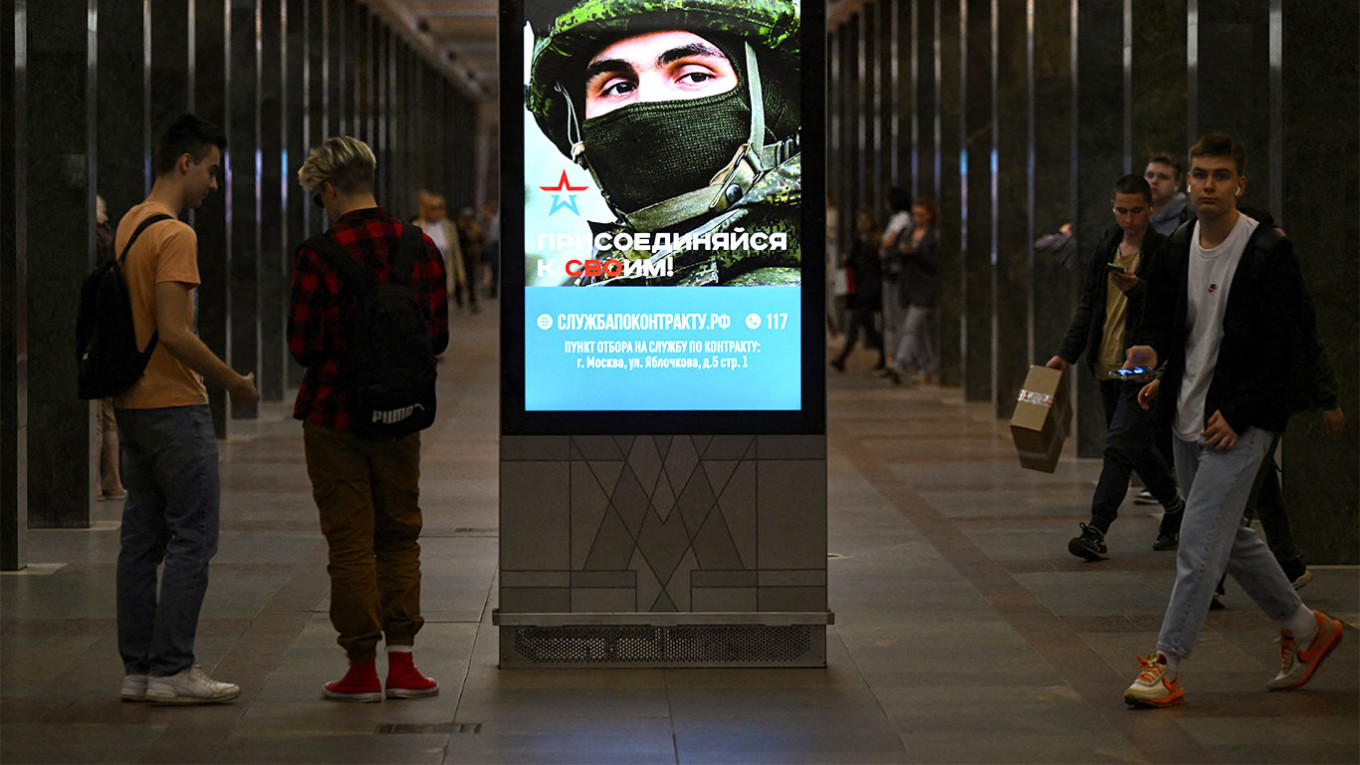
And it’s happening just as Ukraine’s campaign to expose foreign fighters, especially from China, is heating up. As both sides fight their battles on and off the battlefield, the propaganda war is just as critical as the one being fought with bullets and drones.
In today’s hybrid war, optics matter as much as artillery, and Ukraine understands this all too well. Hence, by showcasing captured Chinese fighters, Kyiv isn’t just documenting the battlefield – it’s weaponizing perception, sending a calculated message to both Washington and Brussels: Russia’s war is not just Putin’s, and China’s fingerprints might be deeper than they claim.
The Last Bit
As Ukraine tries to shore up global support and prevent geopolitical realignments that could weaken its standing, Russia is digging in for a long haul, arming itself not just with missiles, but with the bodies of frightened young conscripts.
From Washington’s shifting priorities to the EU’s careful diplomatic dance with Beijing, the global chessboard is moving rapidly.

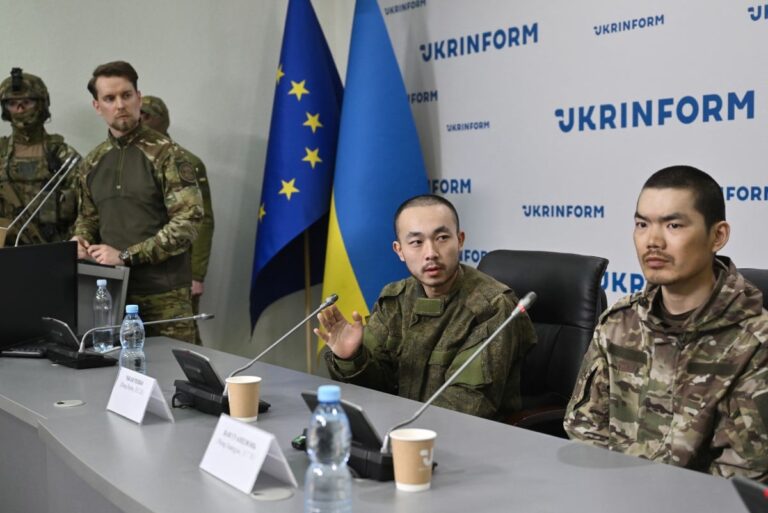
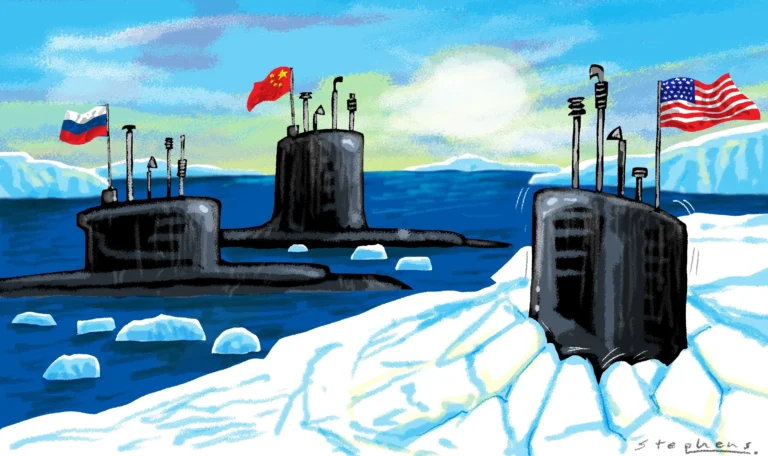

 Russia’s Arctic Imperative
Russia’s Arctic Imperative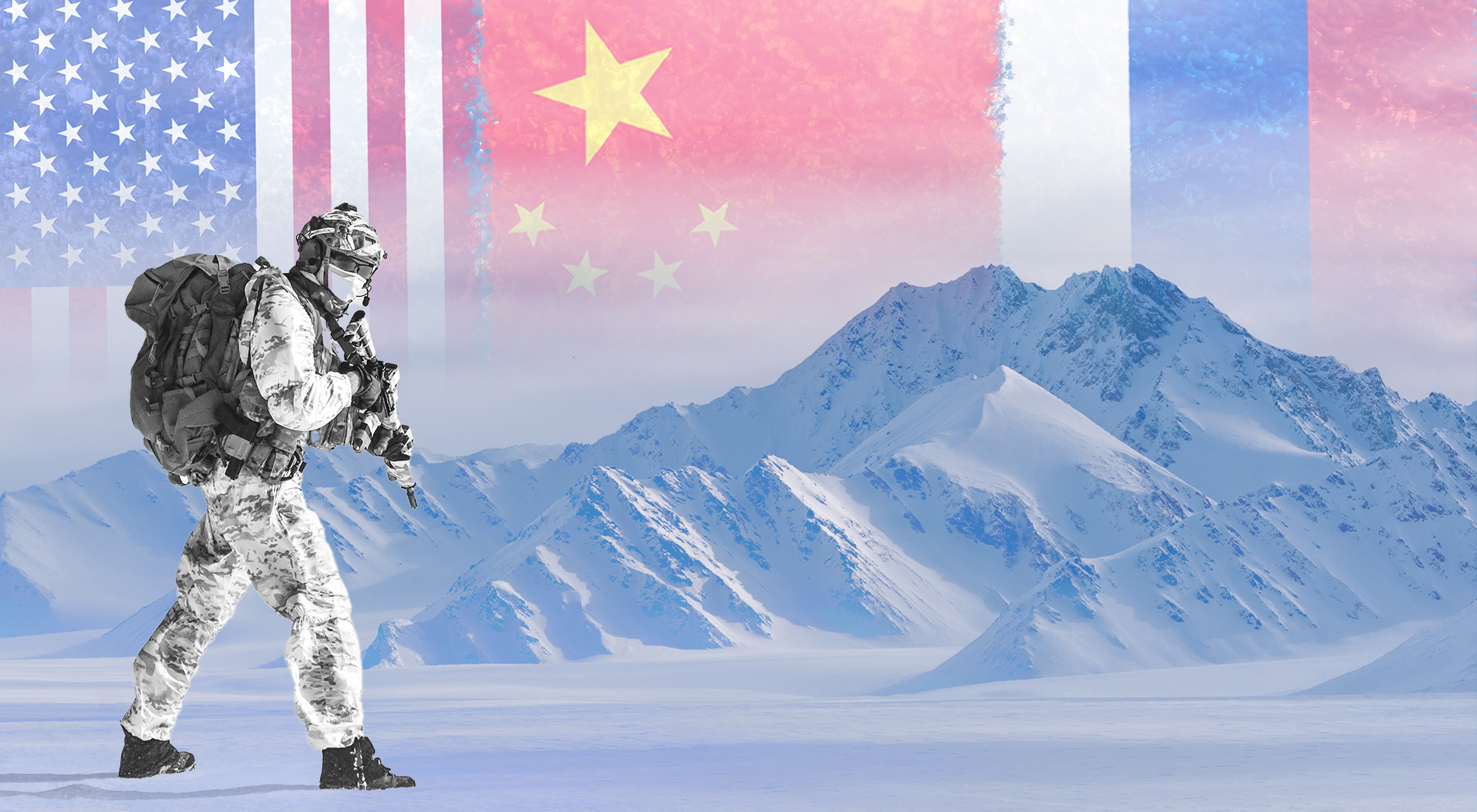

)
